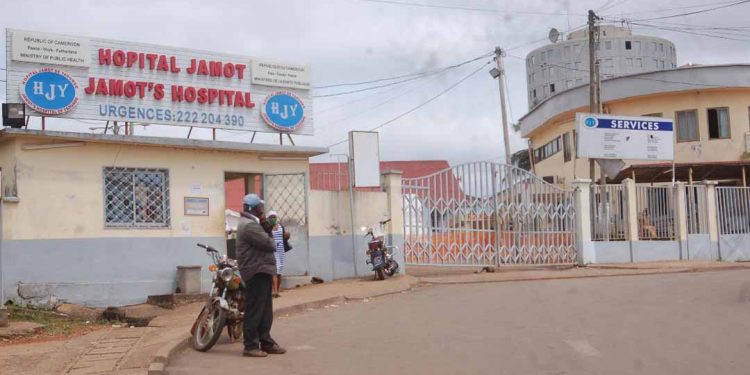Story, Louvier Kindo Tombe
Cameroon, a country grappling with the aftermath of conflict and crisis, is facing a hidden yet devastating epidemic known as mental health disorders. Despite the growing need for support, mental health rights remain neglected, leaving victims to suffer in silence.
In 2017, statistics show that mental health disorders accounted for over 2360 disability-adjusted life-years per 100,000 populations in Cameroon. The global burden of disease reported that about 704,000 people in Cameroon were living with major depressive disorder, 874,000 with anxiety disorder and 48,000 with schizophrenia in 2019.
These numbers are expected to have increased in the last few years, particularly in Cameroon’s English regions, partly due to the ongoing armed conflict in the North West and South West regions, displacement and loss of loved ones, limited access to basic necessities like food, water, and shelter, trauma and violence, COVID-19 pandemic among others.
These have resulted into Cameroonians facing numerous mental health challenges, including but not limited to Post-Traumatic Stress Disorder (PTSD), depression, anxiety, substance abuse, suicidal thoughts and behaviors.
The situation is further complicated by, limited mental health services and support, stigma and discrimination against those seeking help, lack of awareness and understanding about mental health rights, inadequate training for healthcare professionals among others.
Despite these challenges, there are glimmers of hope. Organizations like the Afrogiveness Movement and the African Initiative for Health and Research Promotion (AIHRP) are working to improve psychological care and support.
According to these organizations, Cameroon is in dire need of mental health legislation. “Mental health legislation is necessary for protecting the rights and ensuring the responsibilities of Mental Health Care Practitioners including Psychiatrist, Psychologists and caregivers”.
These organizations are organizing the first ever Mental Health Rights Congress in Cameroon on Tuesday December 3rd 2024. The objective of the congress is to mobilize stakeholders across sectors to understand the importance of a stand-alone Mental Health Law, as well as engage survivors of mental illness to advocate for their mental health rights before the National Assembly.
The event will unite policy stakeholders, Health experts, practitioners and victims or survivors of mental health and psychosocial disabilities.
The expected outcome is that stakeholders endorse the idea of a prospective Mental Health Law, and that survivors of mental illness express their challenges and advocate for their rights at the National Assembly
About the Afrogiveness Movement
Coined from “Africa ” and “Forgiveness,” the Afrogiveness Movement was launched in 2018 (regigered in 2021) to provide mental health and psychosocial care to refugees and Internally Displaced Persons (IDPs). Its mission is to help mentally traumatized youths heal through forgiveness and release through arts, thereby transforming trauma to treasure. But long before the organization was launched, its founder, Franca Ma-ih Sulem Yong had been working for Positive Youths Africa (PYA) since 2015 in which she worked to improve mental health among youths by encouraging youths to live a positive and purposeful life. #Afrogiveness has provided Psychosocial care to 1000 IDPs and refugees. For their strive to improve mental health in Cameroon, the association has won several national and international awards.
About the African Initiative for Hesalth and research Promotion (AIHRP)
The African Initiative for Health and research promotion provides high-quality healthcare services with subsidies (free medical consultation, subsidized medications and Laboratory tests) free health Educational programs and psychosocial counseling, to traumatized victims of conflicts (internally displaced persons and refugees) and low-income persons. It is also in our perspectives to encourage and promote research among young medical students and Health workers to get solutions to and prevent the recurrence of diseases in Cameroon and our African society.








